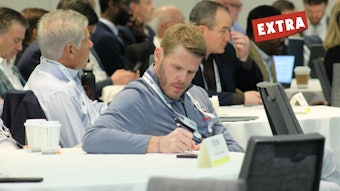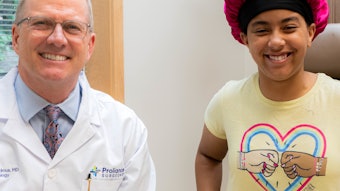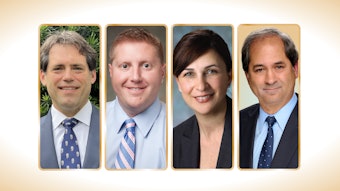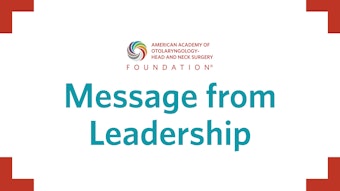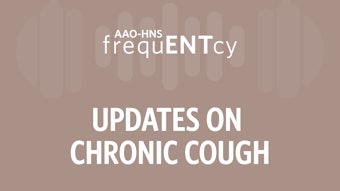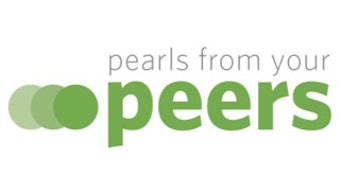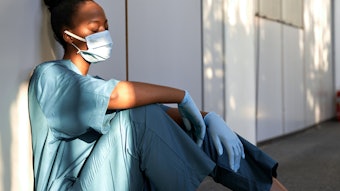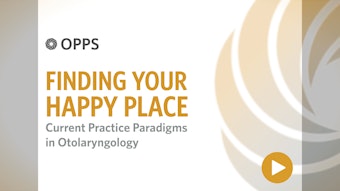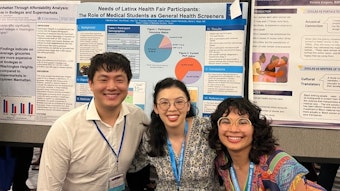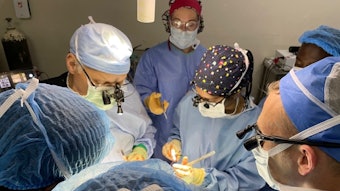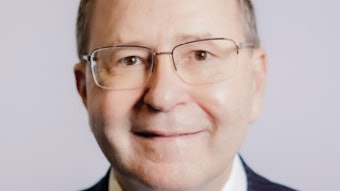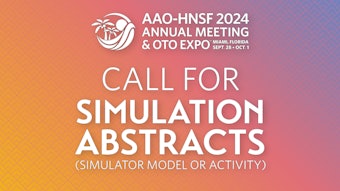AAO-HNSF 2024 Annual Meeting Guest Lectureships
See the 2024 lineup for the Honorary Guest Lectureships, a time-honored tradition at the AAO-HNSF Annual Meeting & OTO EXPO.
John Conley, MD Lecture on Medical Ethics
8:00 – 9:00 am (ET)Saturday, September 28
Presented during the Opening Ceremony
Aboriginal and Torres Strait Islander Ear Health in Australia, an Indigenous Perspective
 Kelvin M. Kong, AM, MBBS BSc, FRACS, MD
Kelvin M. Kong, AM, MBBS BSc, FRACS, MD
In addition to being a professor at the University of Newcastle’s School of Medicine and Public Health, Dr. Kong is an honorary professor at Macquarie University and an associate professor at UNSW. He is the senior examiner of the ORL mini court for the RACS and a member of the National Ear and Hearing Health Partnership Committee.
As one of only five Indigenous surgeons in Australia, Dr. Kong is passionate about addressing the disparity in health outcomes between Indigenous and non-Indigenous children. Each year, he spends a portion of his time working in, and for, remote Australian communities providing access to quality healthcare that would otherwise be limited or unavailable.
Dr. Kong strives to close the gap in ear health to bring all Indigenous Australian children to the same level of well-being and to provide access to healthcare as non-Indigenous children. The rates of ear disease are higher for Aboriginal and Torres Strait Islander children across Australia, with some communities having 90% of young children affected. Hearing loss as a result of ear disease can lead to disadvantages in early learning and development of language and social skills, which can have lasting repercussions.
In recognition of his commitment to equity and the welfare of all, he received Australian honors in 2024 as a member of the Order of Australia General Division for his outstanding contributions to health. He was also named the 2023 NAIDOC (National Aborigines and Islanders Day Observance Committee) Person of the Year, among other awards and recognitions.
About the Lecture
In this session, Australia's first Aboriginal surgeon will examine the issues of ear disease among Aboriginal and Torres Strait Islander communities. Drawing from personal experiences, Dr. Kong will offer valuable insights into the challenges of managing this common health issue and the dichotomy of ear disease in Australia. Through an Aboriginal lens, attendees will gain a deeper understanding of the cultural, social, and systemic factors contributing to the prevalence of ear disease. The lecture will also provide an outlook on potential solutions and strategies for addressing this pressing issue.
Learning Objectives
- Understand the complex interplay of socioeconomic factors, cultural nuances, and healthcare access contributing to the high prevalence of ear disease in Aboriginal and Torres Strait Islander communities.
- Gain valuable insight into the unique challenges facing healthcare professionals in Australia in diagnosing, treating, and managing ear disease within these communities, including cultural sensitivities and historical trauma.
- Explore promising interventions and initiatives aimed at improving ear health outcomes and fostering community-led solutions, highlighting the importance of culturally competent healthcare delivery and holistic approaches to wellness.
H. Bryan Neel III, MD, PhD Distinguished Research Lecture
11:00 am – 12:00 pm (ET)Sunday, September 29
Taste Receptors in Upper Airway Innate Immunity: Implications in ENT Diseases
 Noam A. Cohen, MD, PhD
Noam A. Cohen, MD, PhD
Dr. Cohen’s research interests include host-microbe interactions in the upper airway with an emphasis on sinonasal innate defenses focusing on airway taste receptors and mucociliary clearance, microbial biofilms, solitary chemosensory cells (aka tuft cells), and the development of novel sinonasal topical antimicrobial therapies.
His current efforts focus on correlating the genetics of bitter taste receptor functionality in the context of chronic rhinosinusitis and the therapeutic implications of stimulating sinonasal bitter taste receptors, using bitter tastants, to activate production of local nitric oxide or release of antimicrobial peptides as alternatives for conventional antibiotics in the management of acute and chronic sinus infections.
Dr. Cohen obtained his medical degree and doctorate degree in neuroscience from the Johns Hopkins University School of Medicine. He then completed a general surgery internship, a residency in otorhinolaryngology, and a fellowship in rhinology and skull base surgery at the University of Pennsylvania.
About the Lecture
This session will review recent scientific discoveries involving extra-gustatory taste receptors and their role in mucosal innate immunity in the context of chronic rhinosinusitis. Data will demonstrate how genetically determined bitter taste perception reflects mucosal innate immune functional status and correlates to disease burden and therapeutic outcomes in some subsets of chronic rhinosinusitis. While the clinical focus of this session is on chronic rhinosinusitis, the general scientific principles may extend to other otolaryngologic mucosal diseases.
Learning Objectives
Upon completion of this session, participants should be able to:
- Describe the role of chemosensory receptors in airway innate defense.
- Recognize how the genetics of taste perception reflects susceptibility to chronic rhinosinusitis and treatment outcomes.
- Recognize the role of chemosensory pathways in sinonasal neurogenic inflammation.
Eugene N. Myers, MD International Lecture on Head and Neck Cancer
11:00 am – 12:00 pm (ET)
Monday, September 30
My Journey in Oral Cancer Care and Control in India
 Pankaj Chaturvedi, MD, MBBS, FAIS
Pankaj Chaturvedi, MD, MBBS, FAIS
Dr. Chaturvedi serves as director of the International Federation of Head and Neck Oncologic Societies (IFHNOS), a global organization representing 70 countries. He is the global coordinator for the World Head and Neck Cancer Day as well as a member of several task forces and committees for the government of India.
Areas of research and clinical investigation that are of interest to Dr. Chaturvedi include public health, tobacco cessation, cancer prevention, early diagnosis, and working with government and regulatory agencies for the prevention of cancers. He also has special interest in the management of head and neck squamous cell carcinoma, especially oral cancer. Dr. Chaturvedi has conducted and published several pivotal research studies that have impacted cancer care globally. He is instrumental in the establishment of cancer centers in different parts of India with a vision to make cancer care more affordable and accessible. He also has conceptualized, established, and launched India’s first online oncology tutorial that is used for educating government-employed doctors about cancer care and control.
Dr. Chaturvedi is editor of the Textbook of Head and Neck Surgery and associate editor of the International Journal of Head and Neck Surgery and has more than 350 peer-reviewed publications with an h-index of 62.
Dr. Chaturvedi is the recipient of numerous recognitions for his accomplishments in head and neck surgery, including the prestigious National Institutes of Health (NIH) R01 grant for research on tobacco carcinogenesis. He has received the Excellence in Cancer Care Award, Outstanding Young Indian Award, Robert Maxwell Byers Award, WHO Director General Award, Iconic Leadership Award, Judy Wilkenfeld Award, British Medical Journal Award, Global Cancer Ambassador Award, the Nana Palkar Smruti Award, and the Health Award for Excellence in Oncology, among others. In 2023, the Association of Maxillofacial Surgeons of India recognized Dr. Chaturvedi with a Lifetime Achievement Award.
About the Lecture
India has one of the highest burdens of oral cancer and is the number one cause of cancer-related death in Indian men. Oral cancer also serves as the best model for prevention and early detection. Considering that nearly 90% of oral cancers are attributed to a known etiology, Dr. Chaturvedi will discuss the campaign implemented to curb usage of tobacco, areca nut, and alcohol in a multipronged approach. He will also discuss efforts employed to improve screening and early detection programs throughout the country and implementable treatment guidelines to ensure uniform care. This lecture will offer solutions that are suitable in similar settings.
Learning Objectives
- Recognize the challenges in running national-level programs for reducing incidence and mortality due to common cancers.
- Realize the solutions that can enhance the success of national-level prevention and early detection programs apart from provision of uniform treatment.
- Understand the need for research that is applicable to the local population and its unique challenges.
- Demonstrate the power of engagement of oncologists in public health initiatives.



